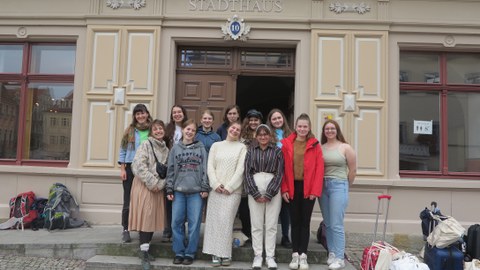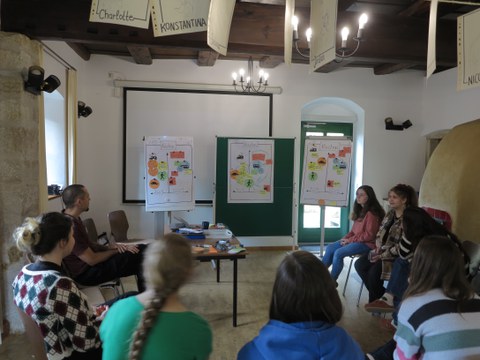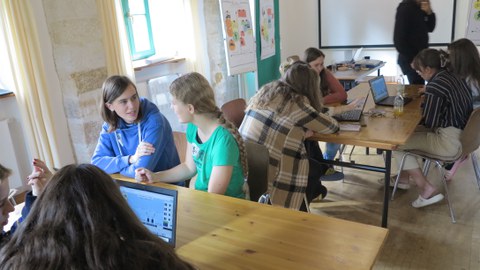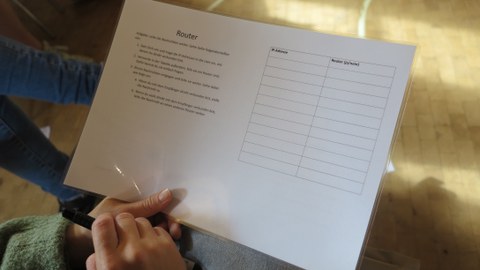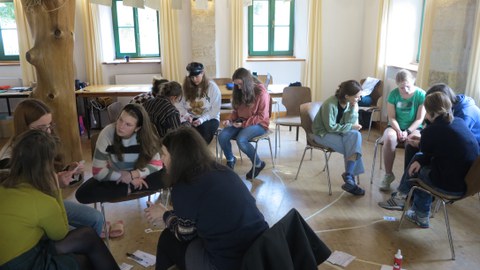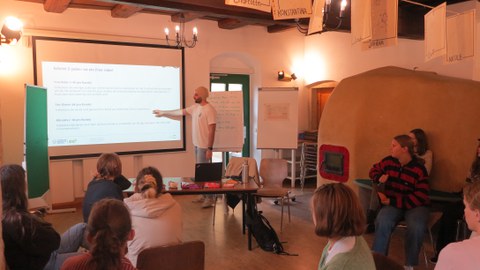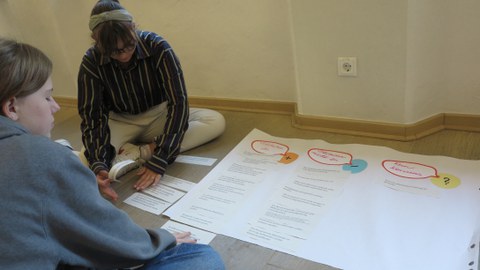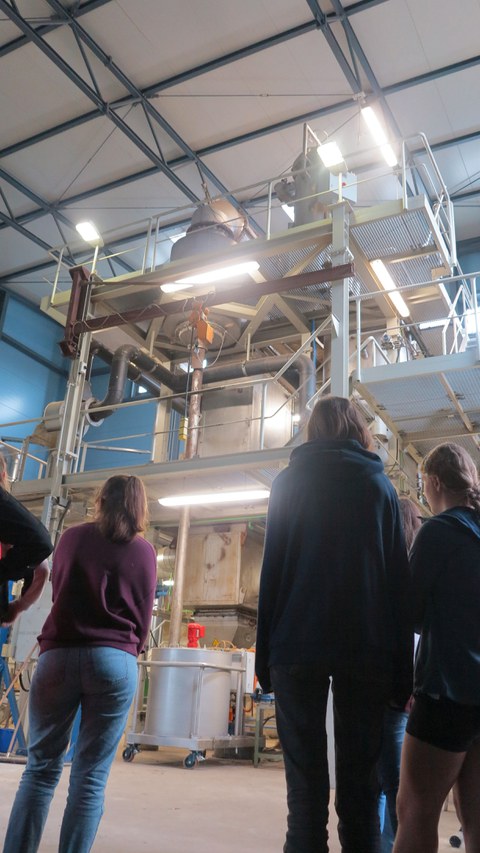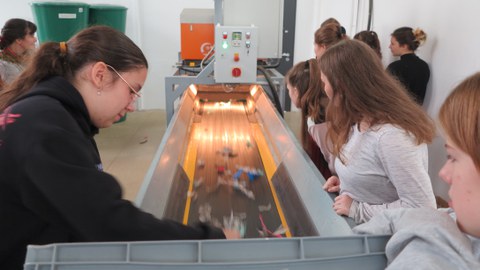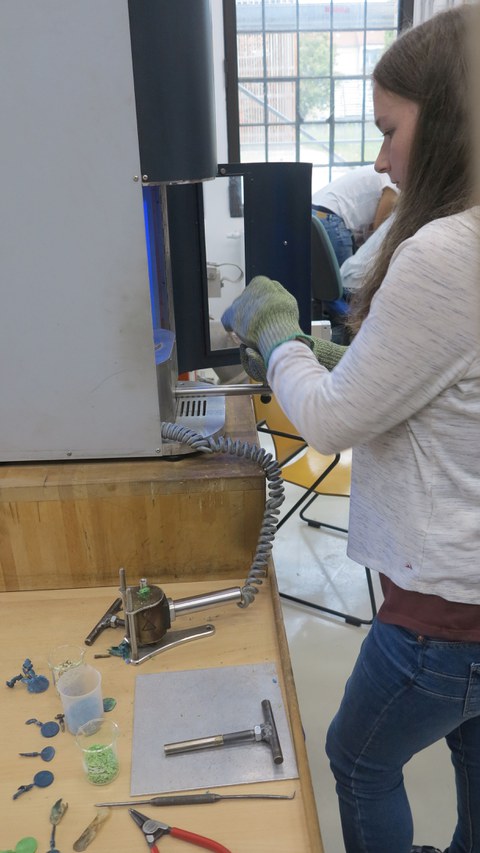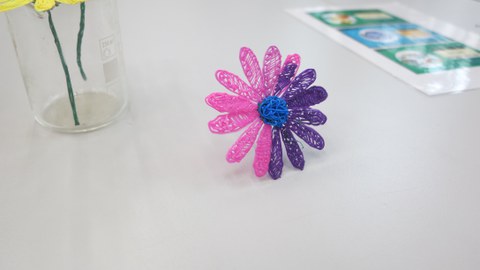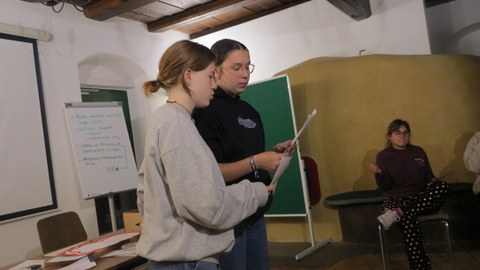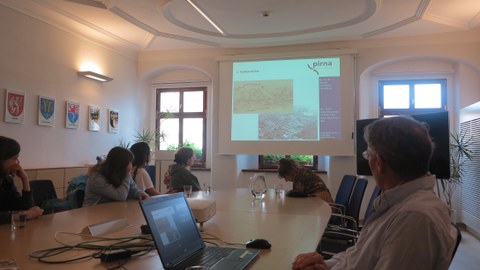Nov 20, 2023
Review of the Fall Camp 2023
What does it actually mean to act in an ecologically sustainable manner and how can this be implemented? What are so-called 'free riders'? And what actually happens to all the garbage? This year's fall camp of the TU Dresden's central point of contact for schools on sustainability topics took place from October 9 – 13 under the direction of Anne Bruder. The ten participating students from grades 9 – 12 received input from experts in workshops and lectures, had the opportunity to exchange ideas and to engage in playful and practical activities. But also apart from the individual events, the team of supervisors offered a broad program for entertainment and getting to know each other. Of course, the catering was not neglected either! Information and impressions of the Fall Camp as well as feedback from the young people can be found in the following review.
The students and counselors arrived at the fall camp on Monday afternoon and got to know the premises and each other with the help of Ice Breaker games such as "Blind Portrait". The group got along well right away – a good starting point for the following program-filled days.
On 10.10., the first workshops took place. The first workshop was held by Adam Django, research associate at the Chair of Traffic Process Automation at the TUD, who started with information and a gamification approach to urban mobility in the Urban-Mobility-Lab. While short inputs, group work and discussions focused on possible problems and conflicts in urban traffic, the participants then had the opportunity to design the Königsbrücker Straße in Dresden themselves using the collaborative software "Streetmix" on their laptops. How wide should the street be? Are there parking facilities and bicycle lanes? And what about planting? The students were able to playfully and creatively implement this and more, and then discuss their designed settings in the large group.
"After the workshop, I can imagine studying in the direction of traffic engineering," is the feedback of one of the participants.
After lunch, the second session started with Caro, one of the supervisors of the fall camp and a science communicator at the Barkhausen Institute. In playful sessions, she taught the participants what routers and servers are, and how high the consumption of network and end devices is. Simulation games were used for this purpose, in which the participants simulated digital communication paths in analog form, taking on the roles of routers, servers, and users. This created a picture of how communication on the Internet or in social media works fundamentally and how overloads and delays can occur.
During the leisure program in the evening, the students were able to try their hand at alcohol-free cocktail mixing on the topic of "sustainable cocktail mixing" and test out delicious drinks they had created themselves. The karaoke session that followed was a perfect continuation of this and, in addition to singing in tune, ensured a relaxed and fun get-together.
On Wednesday, Constantin Dierstein (research associate at the Chair of Energy Economics at TU Dresden) discussed with the students why preventing sicnificant climate change is so difficult. The dilemma was illustrated in the simulation game "Tragedy of the Commons", which staged the conflict "commitment vs. self-interest" in climate protection.
Subsequently, the partial and final results were discussed in plenary. The game also served as a transition to a brainstorming session in small groups, in which possibilities for combating so-called "free riders" – i.e. actors who are willing to invest less (or nothing at all) than the average would require – were negotiated. Finally, these were compared to scientific positions.
In the afternoon, Katja Sinko, education officer in the field of EU policy, invited the students to a future workshop "The EU & YOU". In addition to criticizing current climate and environmental policies, they also worked diligently on utopias.
No good summer camp is complete without surprises: During a spooky night hike – and fortunately in excellent weather – the students were able to use puzzles to rescue the counselor Lilith, who had been kidnapped by villains.
On Thursday, Oct. 12, the Institute for Waste and Recycling Management at the TU Dresden in Pirna was visited. In the first workshop session, Dr. Roman Maletz first gave inputs on the topic of "Waste and Waste Disposal" and then first inspected a waste incineration plant on the premises. The students then went to the sorting facility, where they learned how the machine captures and sorts out different types of plastic waste, and then tried their hand at the machine themselves. In the second part of the first workshop, Benjamin Schwan reported on the requirements and possibilities of the master's program "Waste Management and Contaminated Sites" at the TUD and showed the students further premises of the building and equipment used in waste management.
At the second workshop at the adjacent Institute for Natural Materials Technology, the students got experimental under the direction of Carolin Siegel and Daniela Einer. For example, they worked with plastics at various stations to produce plastic chips for shopping carts using impact extrusion, or cell phone holders with a 3D printer, or to design flowers with a 3D pen.
On the last evening of the fall camp, things got creative and profound. At the camp slam, the experiences of the week were packed into poems and songs and then recited. Really great texts and memorable moments were created. Finally, very open and honest conversations were held at the campfire – an event that showed that the students have found each other as a group.
For the last day of the camp, the urban development was visited in the town hall of Pirna. Steffen Möhrs gave the participants information on the aspects of sustainable urban development in Pirna in a presentation and then answered the students' questions.
Under the guidance of Aktion Zivilcourage e. V., controversial statements around the topic of climate protection and sustainability were discussed in a final forum. A good conclusion for the intensive week full of new impressions.
Looking back, the camp was a complete success. Not only did the students learn about exciting and important perspectives on the topic of sustainability and were able to experiment. They can also look back on fun, profound and varied moments and met real role models in the counselors and workshop leaders. And who knows: Maybe even a friendship or two has developed!

